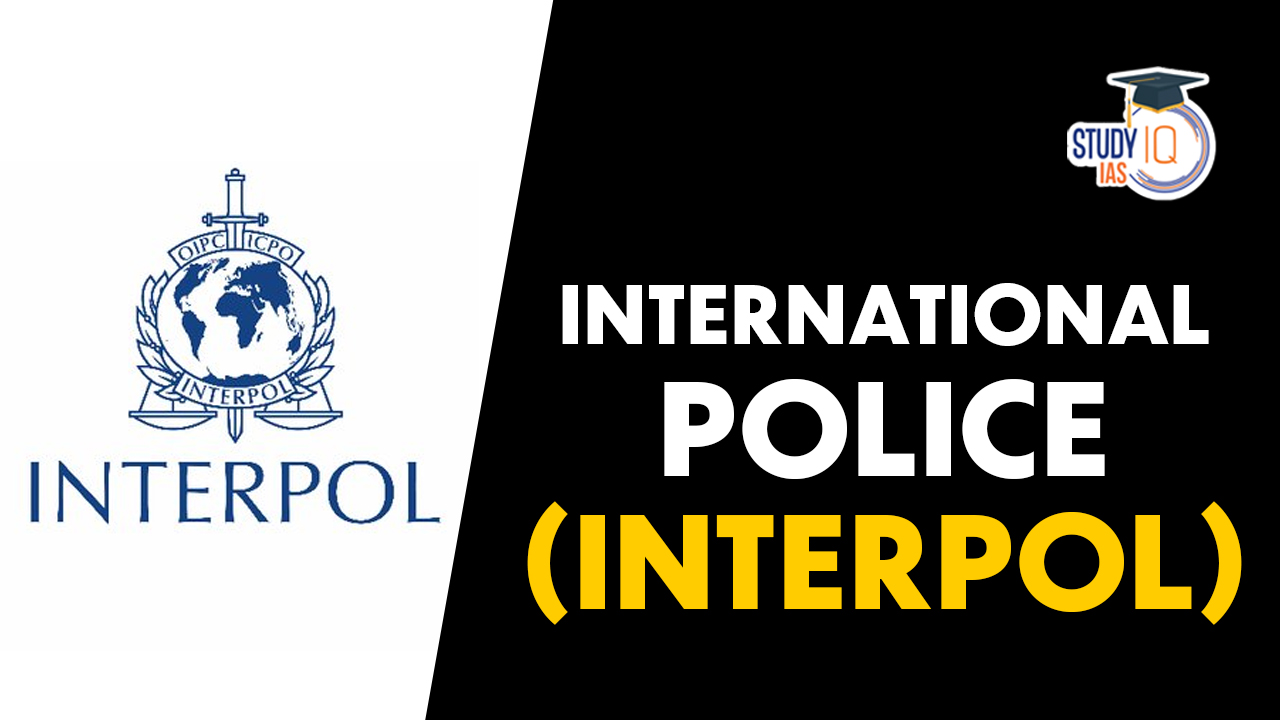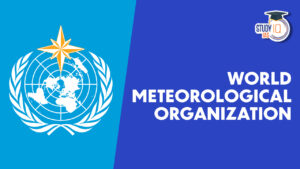Table of Contents
Context: The Enforcement Directorate (ED) has issued its first Purple Notice through Interpol. Interpol issued Silver Notices against two Indians for visa and crypto fraud, marking India’s first use of this new asset-tracking notice launched in January 2024.
International Police (INTERPOL)
The biggest international police organisation in the world is Interpol. It is an inter-governmental law enforcement organisation, helps coordinate cooperation among law enforcement agencies across its member countries.
| About INTERPOL | |
| Headquarter | Lyon, France |
| Members | 196 countries (India is a member) |
| Purpose | Facilitates international police cooperation in criminal matters. |
With 196 member nations, Interpol is the largest international police organisation in the world. It was created in 1923 to facilitate international police collaboration and to help and aid all agencies, authorities, and services whose goal is to deter or combat transnational crime.
Even in the absence of diplomatic ties between some nations, Interpol aims to promote international police cooperation. Action is conducted under the spirit of the Universal Declaration of Human Rights and within the parameters of various national legislation. Any political, military, religious, or racial intervention or activity is forbidden by Interpol’s constitution.’
Types of INTERPOL Notices
Eight different categories of international alerts are published by Interpol, the bulk of which are colour-coded. They include the INTERPOL-UN Security Council Special Notice, the Red Notice, Green Notice, Yellow Notice, Orange Notice, Blue Notice, Purple Notice, and Black Notice.
| Name of Notice | Description |
| Red Notice | An order to locate and detain an extradition candidate is known as a “Red Notice.” It is issued by the General Secretariat at the request of a member nation or an international tribunal based on a legitimate national arrest warrant. |
| Yellow Notice | In order to help find missing people or identify people who can’t identify themselves, a Yellow Notice is published.
It is made available to those who have lost a parent, been kidnapped, or vanished mysteriously. |
| Blue Notice | To learn more about a person’s identity, whereabouts, or activities to a crime, a Blue Notice is published. This does not guarantee the person’s arrest or extradition. |
| Black Notice | A “Black Notice” is a request for details regarding unidentified remains discovered in a member country. |
| Green Notice | A “Green Notice” is published to provide alerts and information about people who have committed crimes and are likely to do so again in other nations. |
| Orange Notice | An Orange Notice is published to alert the public to a situation, person, object, or process that presents a serious and immediate risk to public safety. |
| Purple Notice | A Purple Notice is a request for details about the tools, devices, and concealment techniques used by criminals. |
| Silver Notice |
|
| Interpol-United Nations Security Council Special Notice | For individuals and organisations subject to UN Security Council sanctions, the Interpol-UNSC Special Notice is published. Its main responsibility is to inform national law enforcement organisations when certain people or organisations are subject to sanctions like asset freezes, weapons embargoes, and travel restrictions. |
INTERPOL: Historical Background
A conference of international criminal police was held in Monaco in 1914, and that is how Interpol got its start. Representatives of 20 countries’ criminal police agencies met in Vienna in 1923 and founded the International Criminal Police Commission (ICPC) that year as a result of a significant rise in international crime, particularly in Austria.
Johann Schober, the head of the Vienna police, was elected as the first president of the ICPC, and the organisation’s headquarters were established in Vienna. The ICPC flourished until 1938, when Nazi Germany invaded Austria, at which point the organization’s records were moved to Berlin. The ICPC’s operations essentially ended when World War II broke out. In the past, Interpol was mostly a European organisation with minimal support from the United States and other non-European nations.
International Police (INTERPOL): How is it organised?
A full-time Secretary General is in charge of daily operations; he or she is chosen by the General Assembly and appointed for a five-year term. The General Assembly establishes the policy, which is then carried out by its Secretariat, which has several specialised directorates for crimes like as human trafficking, terrorism, drug trafficking, financial crime, and so on.
Every member nation represents Interpol in that nation. All communications between a nation’s law enforcement agency and Interpol go through the top investigative body in the nation. One of the CBI’s senior officers oversees its unique Interwing (the National Central Bureau), which collects information and communicates with the international organisation.
Structure of INTERPOL
Interpol’s Constitution lists the following administrative divisions as members of the organisation:
- General Assembly
- General Secretariat
- Executive Committee
- National Central Bureaus
The General Assembly and the Executive Committee form the organisation’s governance.
General Assembly
All significant decisions about working procedures, policies, budgets, resources, and other activities and programmes must be made by the General Assembly of Interpol. The delegates chosen by the various member countries gather annually, and the meeting is attended by them. At the Assembly, each nation is represented by one or more delegates, who are frequently heads of law enforcement organisations. The Interpol Executive Committee’s governing body, which “provides guidance and direction in between sessions of the Assembly,” is also chosen by the Assembly.
Executive Committee
The General Assembly elects this committee of 13 members, which comprises:
- A President
- 3 Vice Presidents
- 9 Delegates that cover 4 different regions
General Secretariat
This organ of the Interpol works 365 days 24/7. The General Secretariat has 6 regional offices for efficient functioning:
- Argentina (South America)
- Côte d’Ivoire (West Africa)
- El Salvador (Central America)
- Kenya (East Africa)
- Thailand (South East Asia)
- Zimbabwe (Africa)
National Central Bureaus (NCB)
A National Central Bureau run by national law enforcement is present in every Interpol member nation. The General Secretariat, regional offices, and other member countries are to contact the NCB if they need help with international investigations or finding and apprehending fugitives.
Advisers
These experts may be chosen by the Executive Committee and approved by the General Assembly in a purely consultative capacity.
Functions of INTERPOL
Interpol concentrates on broad areas of international criminal behaviour, including, among other things, terrorism, crimes against people and property, financial, economic, and corruption offences, and counterfeiting. Interpol works together with all of its member countries as well as global institutions like the United Nations and the European Union to combat transnational crime.
Even though the different members of Interpol do not have diplomatic ties with one another, the organisation essentially unifies police forces all around the world. International knowledge sharing, research, and information exchange are made possible by Interpol.


 United Nations General Assembly (UNGA), ...
United Nations General Assembly (UNGA), ...
 Universal Postal Union (UPU), Objective,...
Universal Postal Union (UPU), Objective,...
 World Meteorological Organisation (WMO),...
World Meteorological Organisation (WMO),...




















